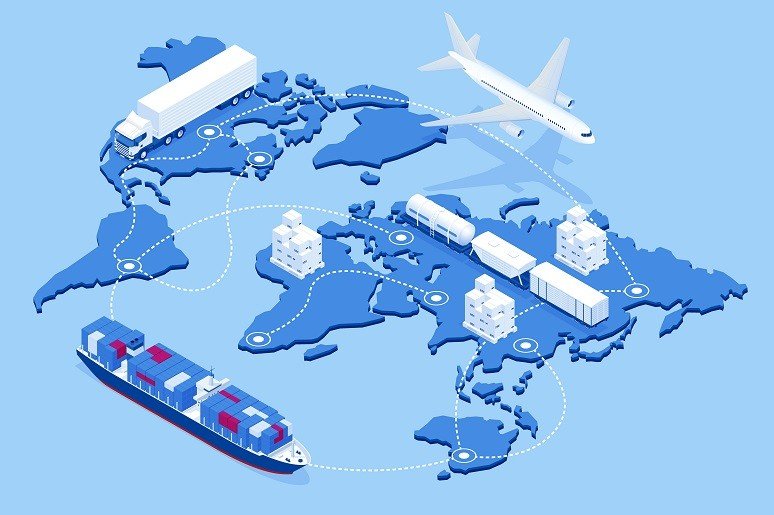Starting a business in Bangladesh can be an exciting adventure, but it comes with its own set of challenges. One of the most important parts of running a successful startup is managing the supply chain. The supply chain refers to the process of getting your product or service from the supplier to the customer. For startups in Bangladesh, this can be especially challenging. However, understanding these challenges and finding solutions can help entrepreneurs manage their supply chains more effectively and grow their businesses.

Let’s explore the challenges startups face when it comes to supply chains in Bangladesh and some practical solutions that can help overcome these problems.
1. Limited Access to Reliable Suppliers
Challenge:
For many startups in Bangladesh, finding reliable suppliers who deliver quality products on time can be difficult. Some businesses struggle with getting the right materials, while others face problems with pricing or inconsistency in quality.
Solution:
Startups can solve this problem by building strong relationships with their suppliers. It’s important to research and vet suppliers carefully to ensure they are trustworthy and reliable. Joining industry networks and collaborating with experienced businesses can also help find dependable suppliers. Additionally, using digital platforms like online B2B marketplaces can provide access to a wide range of suppliers across Bangladesh and even globally.
2. High Transportation Costs
Challenge:
Transportation costs are a significant part of supply chain expenses in Bangladesh. With poor infrastructure in certain areas and traffic congestion, moving goods from suppliers to customers can be expensive and time-consuming. This is especially true for startups that may not have the budget for expensive transportation options.
Solution:
One way to solve this problem is to optimize routes and reduce travel distances. By carefully planning deliveries and using local suppliers, businesses can cut down on transportation time and costs. Additionally, startups can partner with logistics companies that offer affordable freight services or use technology-driven solutions like GPS tracking to find the most efficient routes.
3. Lack of Technology Integration
Challenge:
In many cases, startups in Bangladesh do not fully integrate modern technologies in their supply chain processes. This can result in inventory issues, poor forecasting, and inefficient operations. Many startups still rely on traditional methods for tracking stock, which can lead to mistakes and delays.
Solution:
To overcome this, startups should invest in inventory management software and digital tools to help streamline their supply chain. Using cloud-based platforms can help businesses track inventory in real-time, forecast demand, and reduce the chances of overstocking or stockouts. This also leads to better communication with suppliers and customers, which can improve overall efficiency.
4. Regulatory and Compliance Issues
Challenge:
Startups in Bangladesh face challenges with navigating the country’s regulations and compliance rules related to imports, exports, and taxes. These rules can be complex and time-consuming, causing delays and confusion for entrepreneurs.
Solution:
Startups can solve this issue by seeking help from local experts or hiring consultants who specialize in import/export regulations and customs compliance. It’s important to stay updated with the latest regulations and understand the legal requirements for transporting goods. Building a relationship with the government and industry associations can also help businesses navigate regulatory challenges more easily.
5. Unpredictable Demand and Supply Fluctuations
Challenge:
For startups, predicting demand can be difficult, especially in a growing economy like Bangladesh’s. Fluctuating supply and changing customer preferences can make it hard for businesses to plan their production and inventory.
Solution:
Startups can tackle this challenge by using data analytics to forecast demand. By analyzing past sales data, market trends, and customer behavior, businesses can make more informed decisions about production and stock levels. Also, flexible supply chains that can quickly adjust to changes in demand or supply will allow businesses to respond faster to market shifts.
6. Cash Flow Management
Challenge:
One of the biggest struggles for any startup is managing cash flow, and the supply chain can put a strain on finances. Delays in payments from customers or late deliveries can affect a startup’s ability to pay suppliers and manage operations.
Solution:
To address cash flow issues, startups should ensure they have a clear payment policy with suppliers and customers. It’s important to build trust and maintain transparent communication with both parties. Some businesses also use invoice financing or supply chain financing to get quick access to cash when needed. Keeping a buffer fund for emergencies can also help in managing sudden supply chain disruptions.
7. Skilled Labor Shortage
Challenge:
Many startups in Bangladesh face a shortage of skilled workers who are experienced in logistics, supply chain management, and technology. Without skilled staff, startups can struggle to optimize their supply chains and keep costs down.
Solution:
To solve this problem, startups should invest in training programs for their employees and partner with educational institutions to offer internships or apprenticeships. Hiring experienced professionals or working with logistics consultants can also help improve supply chain management skills in the company. Additionally, startups can take advantage of online courses and webinars to help staff develop the necessary skills to improve efficiency.
8. Poor Infrastructure and Connectivity
Challenge:
In some regions of Bangladesh, there are issues with poor road conditions, limited connectivity, and underdeveloped logistics infrastructure. This can make it difficult for startups to transport goods efficiently to various locations.
Solution:
Startups can address this challenge by focusing on regions with better infrastructure and avoiding areas with frequent transportation problems. They can also consider partnering with local logistics companies that specialize in specific routes or areas. Another solution is to use multimodal transport, combining different methods like road, rail, and sea to ensure smoother and faster transportation.
Overcoming Challenges in Startup Supply Chains
Managing a supply chain for a startup in Bangladesh can be tough, but by recognizing the common challenges and implementing practical solutions, entrepreneurs can create a more efficient and cost-effective system. By leveraging technology, improving relationships with suppliers, and being flexible in the face of changing market conditions, startups can build a strong foundation for long-term success.
Starting a business is hard, but with the right strategies in place, overcoming supply chain challenges becomes a lot easier.




